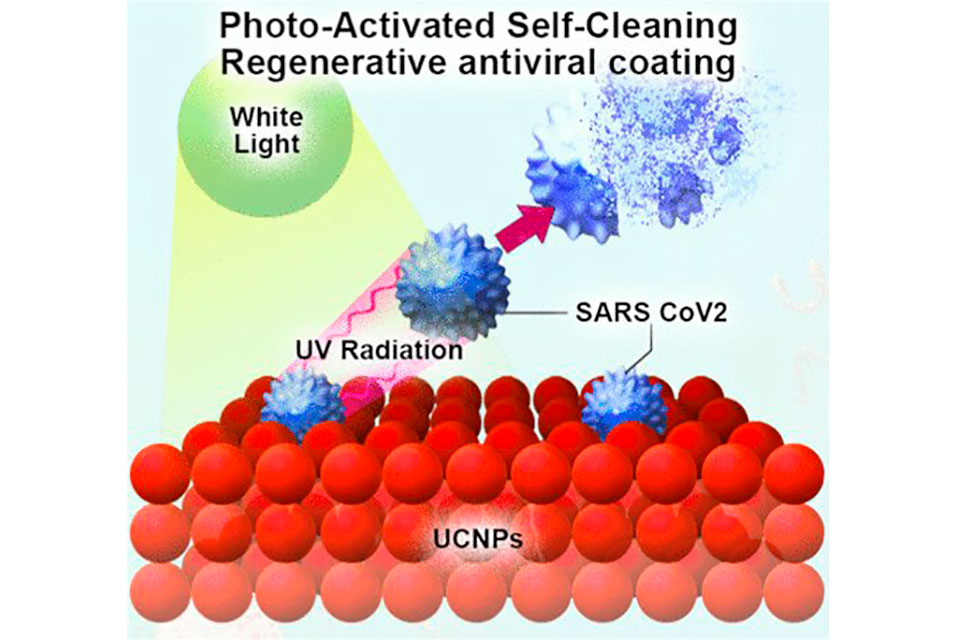ORLANDO, FL.- A team of
UCF researchers have proven the efficacy of a nanomaterial-based disinfectant they developed to combat the spread of the COVID-19 virus. Through their experiments, they found that the disinfectant was able to kill several serious viruses including SARS and Zika. The results of their findings were recently published in ACS Applied Materials and Interfaces.
"It is always a delight to have our research work featured in a reputed journal," said Udit Kumar, a doctoral student in the Department of Materials Science and Engineering (MSE) and the lead author of the journal article. "Given the theme and possible impact of antiviral research in current times, our article will definitely aid our fight against global pandemics."
The paper outlines the most recent study from a multidisciplinary team of researchers that includes Sudipta Seal, the chair of the MSE department, and Griff Parks, a College of Medicine virologist and director of the Burnett School of Biomedical Sciences. They experimented with the nanomaterial yttrium silicate, which has antiviral properties that are activated by white light, such as sunlight or LED lights. As long as there is a continuous source of light, the antiviral properties regenerate, creating a self-cleaning surface disinfectant.
"Yttrium silicate acts as a silent killer, with antiviral properties constantly recharged by the light," Kumar says. "It is most effective in minimizing surface to the surface spread of many viruses."
Kumar says their test of yttrium silicate in white light disinfected surfaces with high viral loads in approximately 30 minutes. Additionally, the nanomaterial was able to combat the spread of other viruses including parainfluenza, vesicular stomatitis, rhinovirus, Zika and SARS.
"This disinfectant technology is an important achievement for both engineering and health because we all were affected during the pandemic," Seal says. "COVID is still ongoing and who knows what other illnesses are on the horizon."
Other UCF researchers, including College of Medicine postdoctoral researcher Candace Fox, nanotechnology student Balaashwin Babu and materials science and engineering student Erik Marcelo, are co-authors on the paper.
"This publication is the culmination of timely insight by the investigators as to the importance of rapid development of broad-spectrum anti-microbials, as well as hard work in the lab to show the potency of our new materials," Parks says. "This is an outstanding example of the power of cross-discipline research—in this case, materials science and microbiology researchers from CECS and COM."









